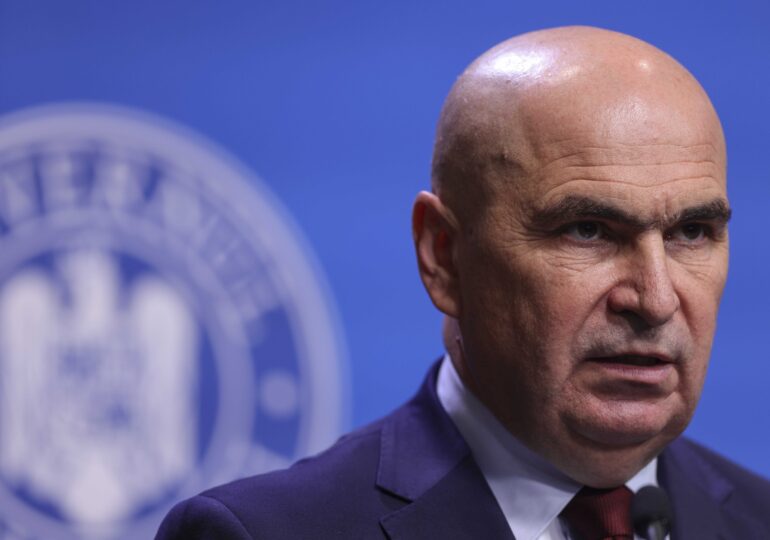The Romanian government is preparing for a tense start to its mandate, as the drastic measures proposed to reduce the largest budget deficit in the European Union threaten to cause a wave of social discontent.
Among the measures under consideration are the dismissal of 20% of public sector employees – at least 167,000 people -, an increase in VAT, and the introduction of a new tax on gambling, writes Politico in an analysis focusing on the situation in Romania.
Romania’s budget deficit reached 9.3% of GDP in 2024. If not significantly reduced, the country risks a downgrade of its sovereign rating, leading to higher borrowing costs and a more pronounced deficit. Additionally, European funds for regional development and post-pandemic support could be suspended.
The coalition of four parties led by the liberal Ilie Bolojan was sworn in on June 23, but opposition to the announced reforms has already begun, as reported by the publication.
On Friday, government employees protested against a draft law that reduces bonuses and days off for working in hazardous conditions. Following the protest, discussions were postponed pending consultations with unions.
The European Commission has asked Romania to reduce its budget deficit to 2.8% of GDP by 2030, according to a recommendation to be discussed on July 8 at the EU finance ministers’ meeting.
However, the road to achieving this goal will be painful, as pointed out by Politico. In addition to staff reductions, the government’s plan includes new taxes on gambling and increases in excise duties. Furthermore, there is consideration for raising the corporate tax and dividend tax from 10 to 16% and increasing VAT on firewood and other energy products from 5 to 9%. Other reduced VAT rates – except for food and medicine – could be raised to 19%.
„This correction is so extensive, so deep, that the pain cannot be avoided,” said Daniel Dăianu, former Finance Minister and current President of the Fiscal Council. He referred to the process as „a day of reckoning” for Romania.
The government also intends to reevaluate investment projects and limit public support programs to those that increase exports, reduce imports, and generate added value.
„We need to convince Romanians, international financiers, and the European Commission to cooperate to avoid a downgrade that would lead to a more complicated and painful situation for Romania,” said Finance Minister Alexandru Nazare.
**Painful Reform**
Ana Otilia Nuțu, a public policy analyst at Expert Forum, believes it is challenging for the government to „sell austerity” when Romanians see „the same tired faces in power, against whom they voted massively.”
The current coalition consists of three of the four parties responsible for the deficit increase in recent years: the Social Democrats (PSD), the Liberals (PNL), and UDMR.
Liberal MEP Siegfried Mureșan, however, states that Ilie Bolojan has a proven reformist track record, citing his achievements as mayor of Oradea, where he streamlined administration and reduced the number of officials.
Nevertheless, Nuțu warns that austerity will be „terribly unpopular” if unjustified expenses are not cut, such as special pensions.
„People will be very angry, and at the next elections, they will sweep everyone away,” she said, anticipating a possible rise in radical populism.
Both Dăianu and Nuțu have highlighted efficient VAT collection as a significant potential direction for deficit reduction. In 2022, the gap between potential and actual VAT collected was €8.5 billion, over 30% of potential revenues, according to European Commission data.
„There will be strong interventions in this area,” said Social Democrat MEP Victor Negrescu. He added that the National Agency for Fiscal Administration (ANAF) needs to be digitized to combat tax evasion, as many Romanians engage in undeclared economic activities.
President Nicușor Dan plans to discuss tax evasion as a national security threat in a meeting with national security officials scheduled for Monday.
Daniel Dăianu also mentioned that the government has not yet published an impact analysis for most of the proposed measures, but in an optimistic scenario, the budget deficit could drop below 8% of GDP by the end of the year.
„The figures are still approximate, but I believe Romania will avoid a downgrade,” concluded Dăianu.

